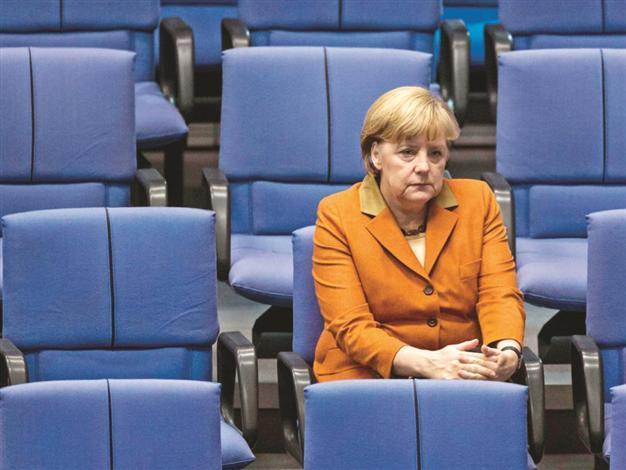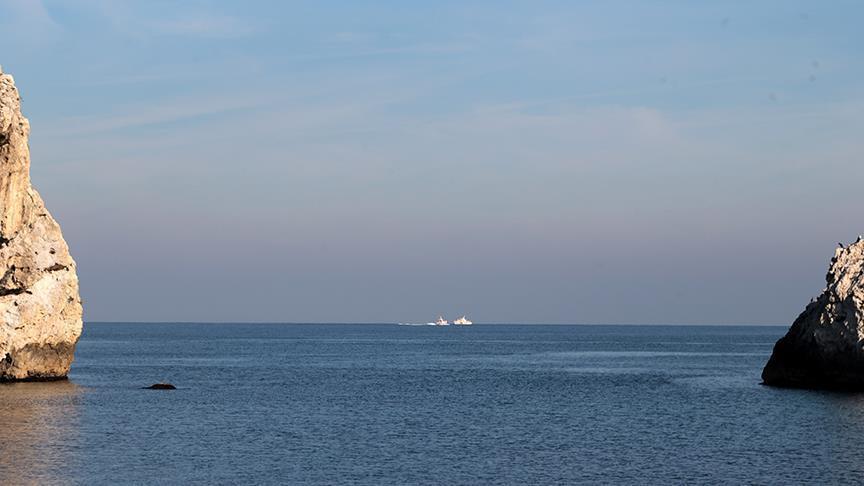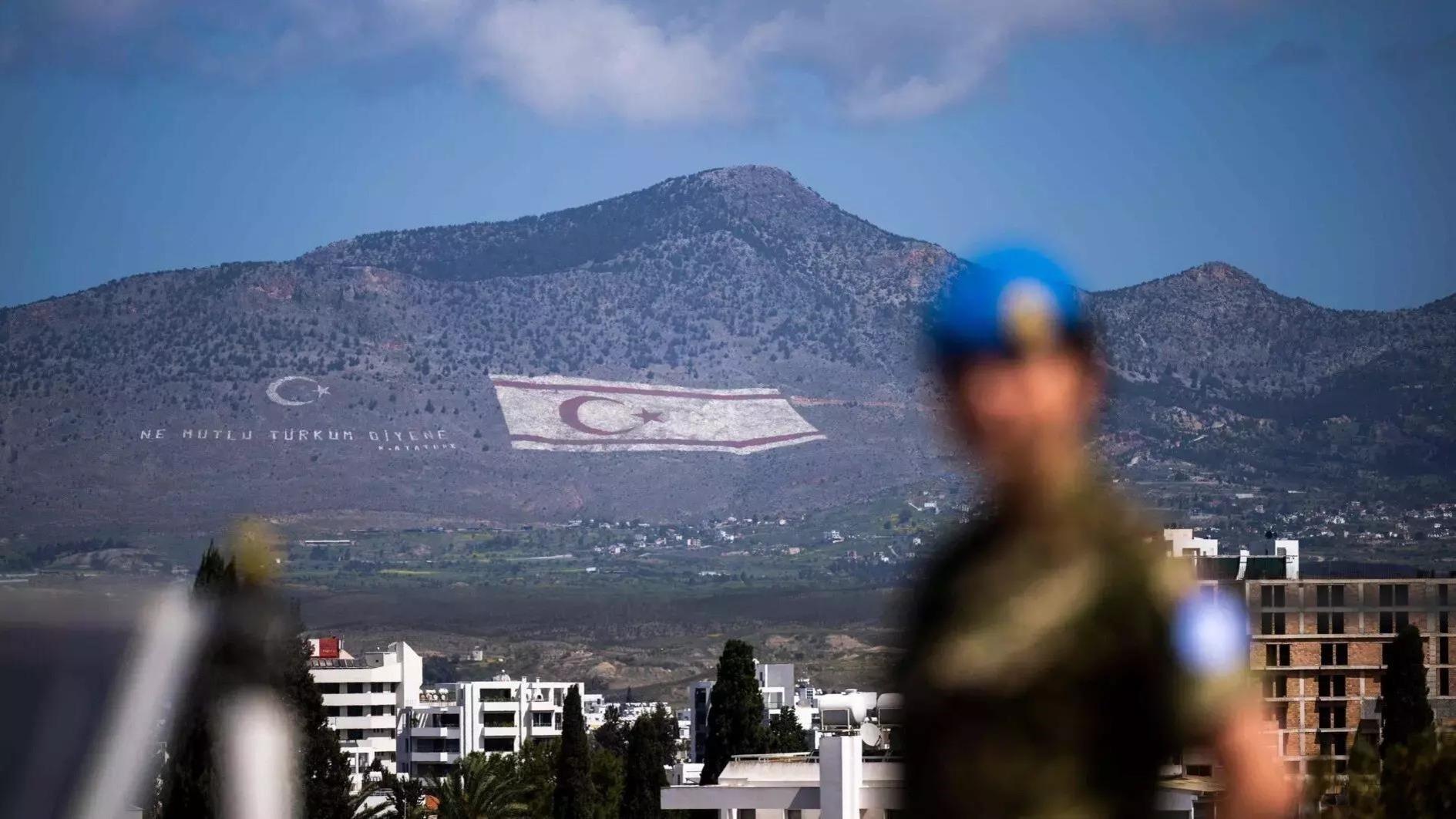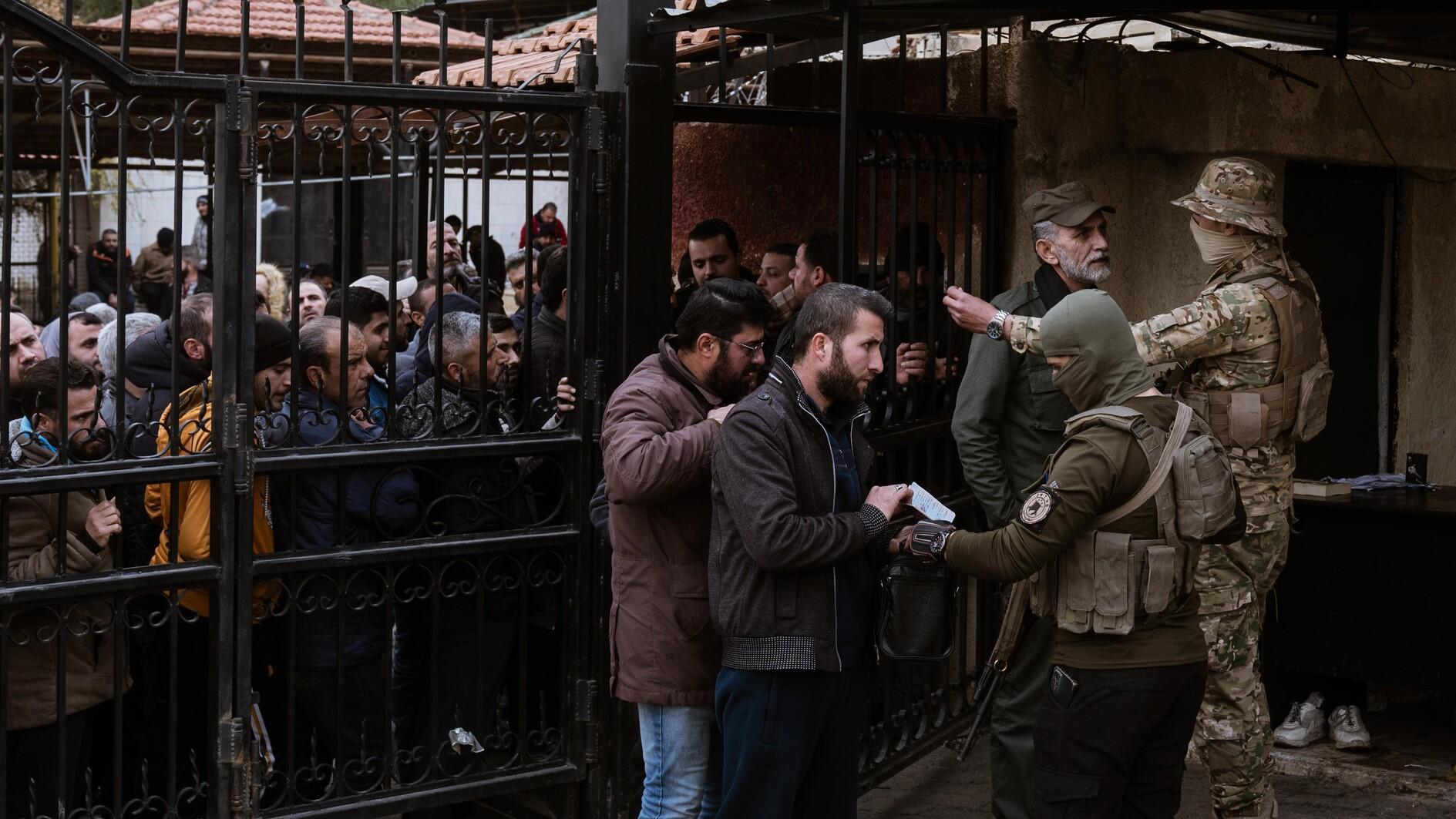Merkel wants to give EU power on national budgets
BERLIN / BRUSSELS - Agence France-Presse

German Chancellor Angela Merkel sits alone during a debate after delivering her government’s policy statement during Bundestag session in Berlin. REUTERS Photo
German Chancellor Angela Merkel called yesterday for the European Commission’s top finance official to have the power to veto the national budgets of member states, while also pushing harder for a European banking union ahead of a crucial summit in Brussels. In the meantime, protesters in Athens clashed with police during a general strike that brought transportation across Greece to a virtual halt.“We believe, and I say this for the whole government, that we could go further by granting European-level real rights to intervene in national budgets,” Merkel said, addressing the Bundestag lower house of Parliament, hours before EU leaders were due to gather in Brussels. Interventions should be able to be made in budgets that breach the limits of the EU’s growth and stability pact, Merkel said, backing a proposal made by her finance minister.
Wolfgang Schaeuble had earlier this week called for the EU’s Economic and Monetary Commissioner to be empowered to send back budgets to national Parliaments, and also backed a reform to the European Parliament’s decision-making process.
In her speech to lawmakers outlining Germany’s position ahead of the EU summit, Merkel said that “unfortunately” she knew some EU member states were not ready for such a step. However, she also added that if a national budget were declared “invalid,” “we would be at the stage of needing someone in the [EU] Commission with the authority to do that [intervention],” suggesting the economics commissioner could do the job.
Merkel said the EU should be given the power to veto national budgets if they breached EU fiscal rules.
[HH] Merkel, Hollande differ sharply Paris and Berlin appeared set for a clash on whether to continue to further tighten the fiscal austerity policy the bloc has been following, or to push forward with measures to help eurozone states cope with the crisis. Ahead of the meeting, Paris pressed for a single banking union, an offer that Germany is cautious about.
“The subject [of the EU summit] is not budgetary union, it is banking union,” French President Francois Hollande told a meeting of European Socialists in Brussels.
“The only decision that we must take, or rather confirm, is the setting up of the banking union by the end of the year, and notably the first step, which is banking supervision,” he said.
Austrian Chancellor Werner Faymann struck another discordant note, saying he wanted the EU to focus “on real measures to combat unemployment, especially among the young,” rather than proposals for a new-style EU commissioner.
Diplomatic sources said Hollande and Merkel would meet before the two-day summit, which had not opened before the Daily News went to print yesterday evening.
The exchanges reflect continued strains after a “breakthrough” June summit - held as the eurozone debt crisis looked set to bring down Spain – agreed that the bloc had to accept tighter budget policy coordination if the euro was to survive.
In addition, the summit also agreed to put in place a single “banking union” supervisor by the end of the year, a key step to allow the new European Stability Mechanism (ESM) rescue fund to begin directly recapitalizing stricken states’ banks.
That would signify an important change as bank aid would no longer threaten to push countries into a full bailout, as Ireland was forced to seek.
















